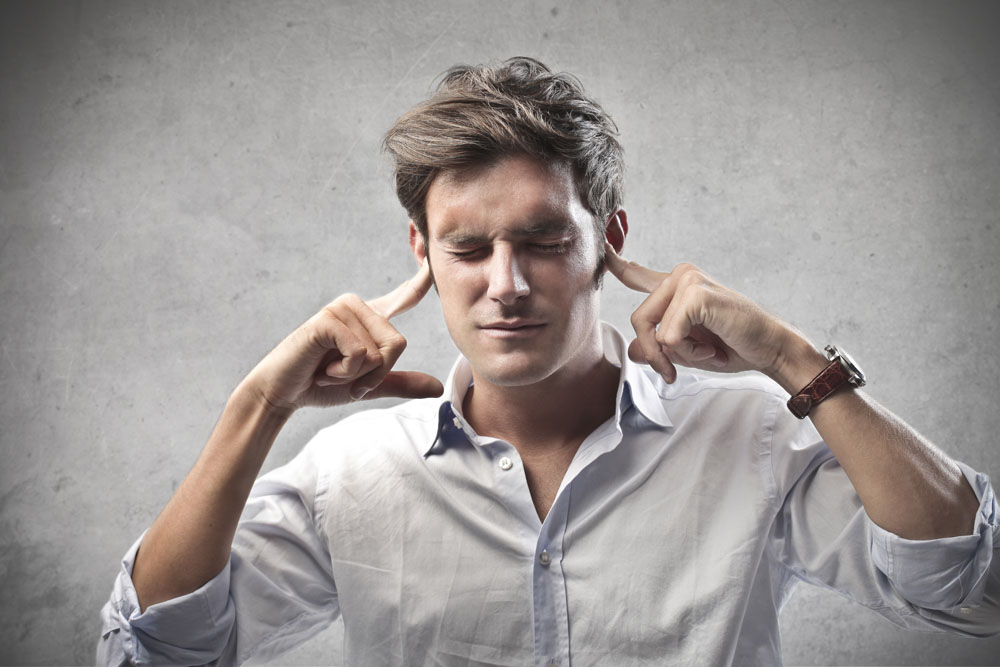Harvey Schachter | Special to The Globe and Mail
Oct. 10 2013
Too much noise can knock you off balance.
That’s the warning from Shawn Achor, San Antonio, Tex.-based author of the bestselling book The Happiness Advantage and the recently published Before Happiness. But Mr. Achor is not talking about the noise of a neighbour’s stereo blasting away or drilling at a construction site across from your office. For him, external noise is the flood of information, often negatively tinged, that washes over you each day. And the internal noise, usually negative, that invades our thoughts throughout the day.
Our ancestors looked to external noise for clues to threats. In a sense, we are doing that as we scan e-mails, newspapers and other information each day. At a basic level, noise distorts our reality – Las Vegas casinos overload our brains with sounds and lights to distract us from the reality that we’re losing money. He says that the noise from the information we receive, so much of it negative, pushes us into a “negative reality,” in which our equanimity is tipped, our stress heightened, and our potential limited.
“If you can decrease the noise, it can have a huge impact on happiness. If we can find some balance – turn away from constant messages – the brain can scan the present for things you are grateful for,” the positive-psychology lecturer said in an interview.
He points to a Fortune 100 company where he recently worked with the management team. They have a policy to use no technology on Sundays – to shut down. The result, they found, was greater productivity during the week owing to that day of rest. The policy, it’s worth noting, applied only to the top team, not others who work for them, which he found ironic.
He distinguishes between signals and noise. A signal is information that is true and reliable, alerting us to the opportunities, possibilities and resources that will help us attain our true potential. Noise is everything else – information that is false, or unnecessary, or prevents us from seeing a world where success is possible.
He lays out four criteria for identifying noise:
Unusable: Your behaviour won’t be altered by the information. “Once you start applying this mental algorithm, you’ll realize that, sadly, most of the information that floods your brain on a daily or even an hourly basis fits into this category,” he writes in his latest book. An earthquake or coup in a country across the globe may be tragic, but it’s essentially extraneous to your life, so don’t let it jolt you into a negative space.
Untimely: You are not going to use the information imminently, and it could change by the time you use it. If you intend to hold stocks for the long run, why check the stock market each day?
Hypothetical: It is based on what someone believes “could be” instead of “what is.” Economic and weather forecasts head the list. “What if you could have back all the minutes of your life you’ve spent listening to predictions – 90 per cent of which have been wrong?” he asks in the book.
Distracting: It distracts you from your goals. Much of the e-mail you received today, let alone your surfing of websites, took you no further toward your big goals.
He urges people to start distinguishing between the signals and noise that come at you, and reduce your brain overload by stopping the addiction to noise. Eliminate the things that are hypothetical, and the reports about car accidents in foreign countries. “Don’t turn a blind eye to the world, but focus on the things that are meaningful,” he said in the interview. “The more we focus on noise, the less we hear the important signals.”
At companies he works with, he asks people to experiment by decreasing their information intake by 5 per cent – specifically information that qualifies as noise. Set boundaries as well, looking at your e-mail only periodically. When you head to a website, scan only for information that matters to you. “Five per cent is a small number, so people feel it’s possible. It turns down the volume a bit,” he said. Perhaps that 5 per cent is spread through the week, or only a chunk of weekend time when you grab a respite. You’ll find reducing the noise, even slightly, increases your social connection with others, which he says is the greatest predictor of happiness.
He has noise-cancelling headphones for flights so he can isolate himself from the din around him. Similarly, you want to reduce the noise from internal doubt, fear of the future, and self-criticism. Studies show that if an employee or child is fearful, they will often fail on the next project or math test. Your noise-cancelling headphones allow you to think of positive moments that counteract those fears, such as three successes you had in similar situations.
He offers three principles to live by:
I will keep my worry in proportion to the likelihood of the event.
I will not ruin 10,000 days to be right on a handful. “Some people worry for 10,000 days about various things to get past one bad day. They give themselves 10,000 bad days to have one good day,” he says.
I will not equate worrying with being loving or responsible.
In short, be conscious of the noise coming at you – external and internal – and reduce the incidence of the noise to increase your balance and happiness. {end}

